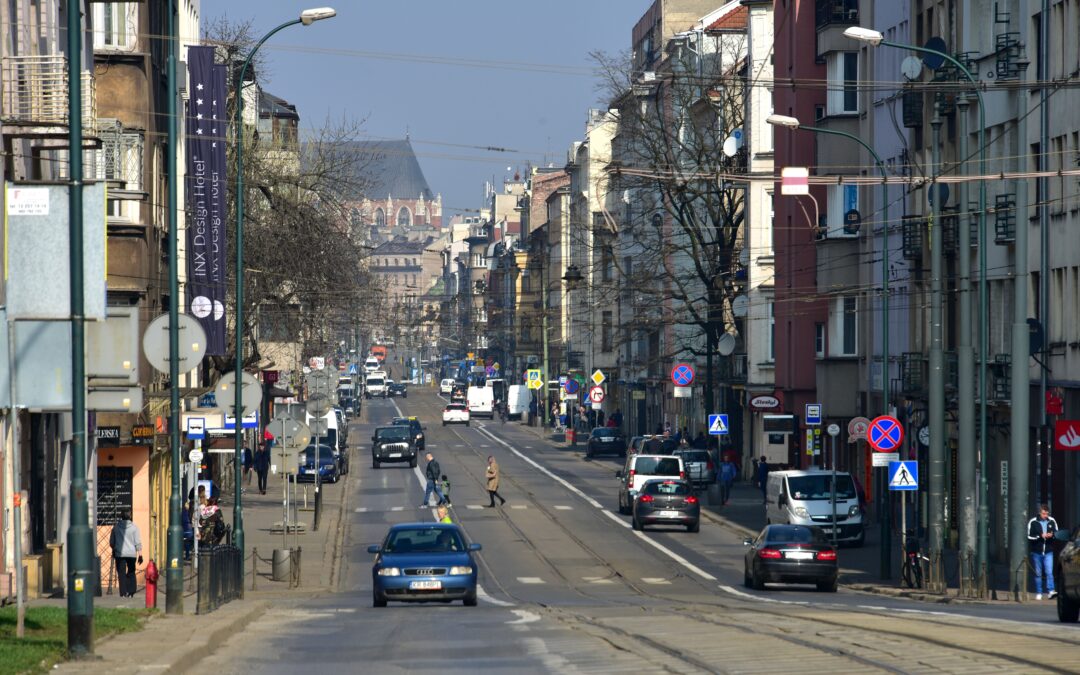A government-appointed provincial governor has launched a legal challenge against the creation of Poland’s – and Central and Eastern Europe’s – first “clean transport zone”. He argues that the plans – in which older cars would be banned from the city of Kraków – would “interfere with constitutional rights and freedoms”.
In November last year, Kraków city council approved a proposal by the mayor to begin banning older petrol and diesel cars – which are on average more polluting than modern vehicles – from mid-2024. In January, Warsaw became Poland’s second city to announce such plans.
Kraków has become the first city in Poland to ban older cars from its roads in a bid to cut pollution.
Its new "clean transport zone" – which is also the first in Central and Eastern Europe, according to activists – will be introduced in 2024 https://t.co/TgVKtbuAR5
— Notes from Poland 🇵🇱 (@notesfrompoland) November 24, 2022
However, this week Łukasz Kmita, the governor of the Małopolska province in which Kraków is located, submitted a complaint against the city’s plans to the provincial administrative court.
Kmita belongs to Poland’s nationally ruling conservative Law and Justice (PiS) party and, like all provincial governors, was appointed to the position by the prime minister. Kraków, like all large Polish cities, is ruled by the opposition. When the city council voted on the clean transport zone plans, PiS councillors were opposed.
Kmita’s office said that Kraków had, by introducing the ban, undertaken “too far-reaching interference in the sphere of constitutional rights and freedoms, such as human freedom, freedom of movement, and equality before the law”, reports the Polish Press Agency (PAP).
The governor said he is not questioning the right of the city council to introduce a clean transport zone, but argues that it had “violated the principle of proportionality” by failing to ensure that the “limitation of an individual’s rights must be…made only to the extent necessary”.
Wojewoda małopolski skierował do Wojewódzkiego Sądu Administracyjnego w Krakowie skargę na uchwałę rady miasta dotyczącą Strefy Czystego Transportu – poinformował dyrektor Wydziału Prawnego i Nadzoru Małopolskiego Urzędu Wojewódzkiego w Krakowie.https://t.co/wmUjIakwZI
— TVP3 Kraków (@TVP3Krakow) April 19, 2023
Among specific issues raised by Kmita are that the clean transport zone is too large, for example preventing access to park and ride services and not allowing people with older cars to reach the city’s largest hospital, reports the Gazeta Wybrocza daily.
He also argues that the council did not include in its plans regulations for how traffic would be organised within the clean transport zone, as it was required to do.
“Subjecting the [clean transport zone] resolution to court assessment…will dispel doubts as to the legality of the provisions of the resolution, which have been indicated in numerous interventions addressed to the governor,” said Kmita’s office.
Gazeta Wyborcza reports that among the organisations to have registered opposition to the plans are Ordo Iuris, a leading ultra-conservative legal group, and the Association of Christian Culture (Stowarzyszeni Kultury Chrześcijańskiej).
Three Polish cities have the worst traffic in the world among places with a population below 800,000, finds a new ranking.
In Wrocław, it takes an average of 24 mins 30 seconds to travel 10km in the city centre, followed by Łódź (22:20) and Kraków (21:40) https://t.co/w6lydrkPSf
— Notes from Poland 🇵🇱 (@notesfrompoland) February 16, 2023
Over 320 cities across Europe – including London, Berlin and Madrid – have so far introduced zones that bar entry to cars producing high emissions.
Poland is regularly ranked as having among the worst air pollution on the continent, and Kraków itself long had some of Poland’s worst smog.
However, the city has taken a number of steps in recent years to improve air quality, including in 2019 becoming the first in the country to ban the burning of coal and wood in homes, which had previously been the primary cause of pollution.
The quality of air in Kraków has improved considerably since 2012, according to a new study.
Kraków has long had some of the worst smog in Poland, which itself has the EU's most polluted air. But the city has taken a number of steps to tackle the problem https://t.co/0ipu3JwgE0
— Notes from Poland 🇵🇱 (@notesfrompoland) January 28, 2021
Main image credit: Adrian Grycuk/Wikimedia Commons (under CC BY-SA 3.0 PL)

Daniel Tilles is editor-in-chief of Notes from Poland. He has written on Polish affairs for a wide range of publications, including Foreign Policy, POLITICO Europe, EUobserver and Dziennik Gazeta Prawna.




















